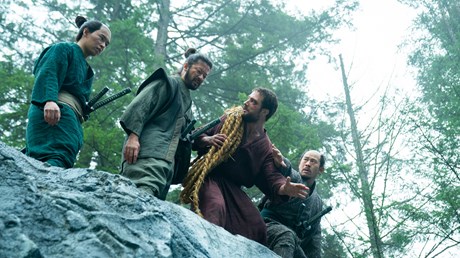The real-life John Blackthorne was an Englishman who came to be known as Anjin. What the letters he left behind reveal about his relationship with God.

In Shizuoka, the prefecture of Japan where I grew up, you can find a park dedicated to the first Englishman to enter Japan. A small public space along the water in the city of Itō, it commemorates Miura Anjin, or William Adams, who arrived in the country when his ship washed up on its shores.
Captured by local leaders, Anjin was put in the service of Tokugawa Ieyasu—the first shōgun (a chief army commander who ruled Japan) of the Edo period—which led to his ascendancy as the first Westerner to become a samurai, earning him the nickname of “blue-eyed samurai.” Itō’s annual Anjin Festival in August commemorates his accomplishment in building the first Western-style ships in 1604, and Japan has honored him by registering his burial mound, Anjin-zuka in Yokosuka, as a national historical landmark.
Shōgun (2024), currently playing on FX, takes its inspiration from the lives of Anjin and Tokugawa. Set in the year that Anjin first stepped foot in Japan, it tells the story of an English ship pilot named John Blackthorne (Cosmo Jarvis) who washes ashore and is taken captive by Japanese bushō (“warrior lord”) Toranaga Yoshii (Hiroyuki Sanada). Blackthorne soon becomes entangled in Toranaga’s political rivalry with four other bushōs and ultimately witnesses the rise of Toranaga as a shōgun. Writers and producers Rachel Kondo and Justin Marks based their TV series on James Clavell’s bestselling novel with the same title published in 1975, which sold over 15 million copies and subsequently became a popular TV show in 1980.
Just as the original novel grew the general public’s interest in Japanese culture, the 2024 FX adaptation undoubtedly will inform many about Japanese culture …

